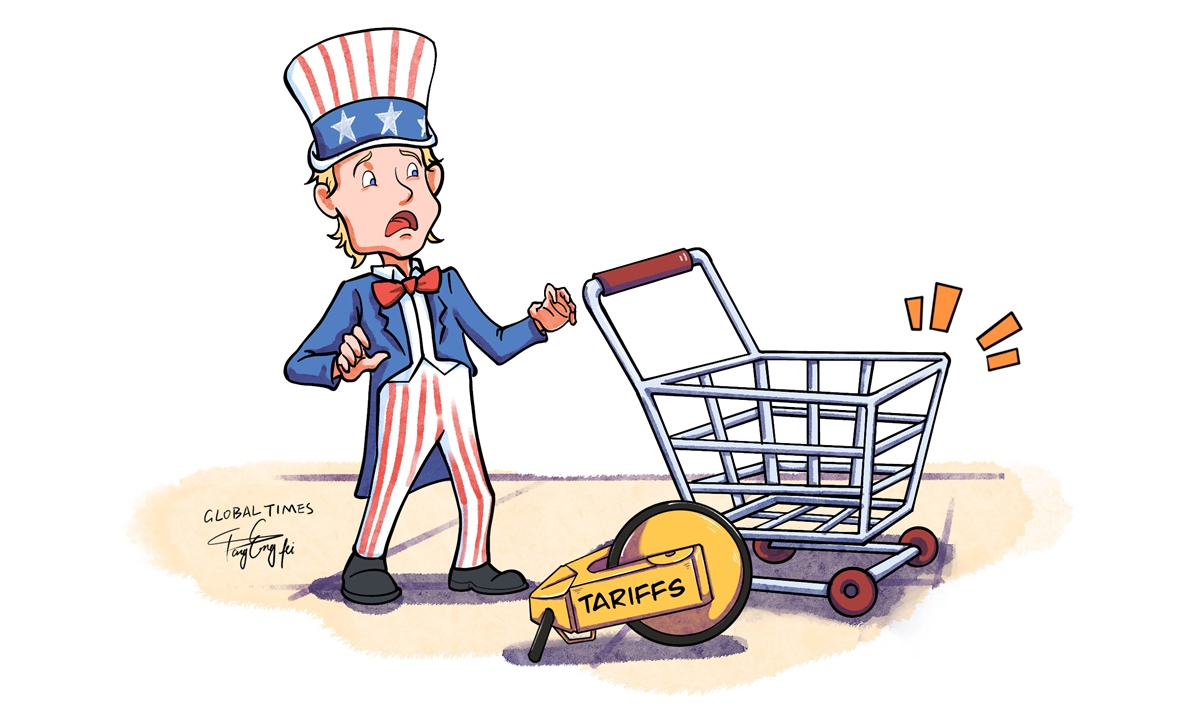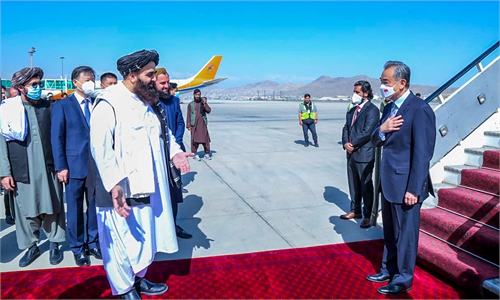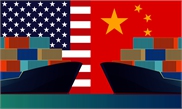
Illustration: Tang Tengfei/Global Times
The topic of why the Biden administration doesn't lift Trump-era tariffs on Chinese goods to ease inflation, which has turned into a heated public discussion, is one that is awkward for US top leaders who have reiterated that everything will be down to curbing inflation.On Tuesday, US Trade Representative Katherine Tai tried to deliver a reasonable explanation for why the tariffs shouldn't be abolished, as she said a move to remove tariffs will do little to tame inflation.
Tai offered the remarks at the National Association for Business Economics (NABE) annual meeting in Chicago, media reported on Wednesday.
However, US Commerce Secretary Gina Raimondo said in June that President Joe Biden has asked his team to look at the option of lifting some Trump-era tariffs on Chinese imports to "combat the current high inflation," Reuters reported. There are "products - household goods, bicycles, etc. - and it may make sense," Raimondo said, according to Reuters.
Although US inflation is not all about tariffs and is linked to many other issues, including high energy prices, a lifting of tariffs on daily necessities imported from China will definitely help ease inflation. The Biden administration certainly knows the positive effect of a tariffs cut on easing inflation.
No matter whether a tariffs cut can become reality or not, the arguments to lift some of the Trump-era tariffs on Chinese goods can be used as at least a political show to demonstrate the Biden administration's alleged determination to manage inflation. What the administration cares about is not a tariffs cut that can really help ease inflation, but how to convince the public of their "determination" and to win votes.
After the Federal Reserve came into play to tame inflation through use of frequent interest rate hikes, there is less pressure on the Biden administration to defend the public's accusations of inaction over inflation control. However, the upcoming midterm elections for US Congress are very likely to prompt the Biden administration to take a tougher stance on Chinese issues as a ploy to win votes.
According to media reports, the Biden administration will keep tariffs on Chinese goods in place while it continues a review of the duties imposed by Trump. It would not be surprising if the Biden administration now wants to trumpet Tai's remarks claiming a move to remove tariffs will do little to tame inflation.
Tai said on Tuesday that although removing tariffs would have a limited effect on controlling inflation, those tariffs on Chinese goods play an important role in the "strategic adjustment" of US-China relations.
It seems clear that Washington sees Trump-era tariffs on Chinese goods from a political, instead of economic point of view. Although US politicians know well that their decision to lift Trump-era tariffs is a matter that concerns the economy and the lives of ordinary American people, they insist on using these tariffs as a tool to achieve their political goals and to advance their political interests.
First, a tariff removal closely relates to interests of ordinary American people. Some analysts suggested that if the US removes all tariffs on Chinese goods, this may help to reduce US inflation by 1-1.5 percent. Second, the tariffs make Chinese imports more expensive for US companies, which, in turn, reduce their competitiveness in domestic and global markets.
The Biden administration should stop the politicization of trade issues, especially Trump-era tariffs on Chinese goods, as US politicians have no right to pursue political wealth at the expense of American companies and ordinary people.
The author is a reporter with the Global Times. bizopinion@globaltimes.com.cn



